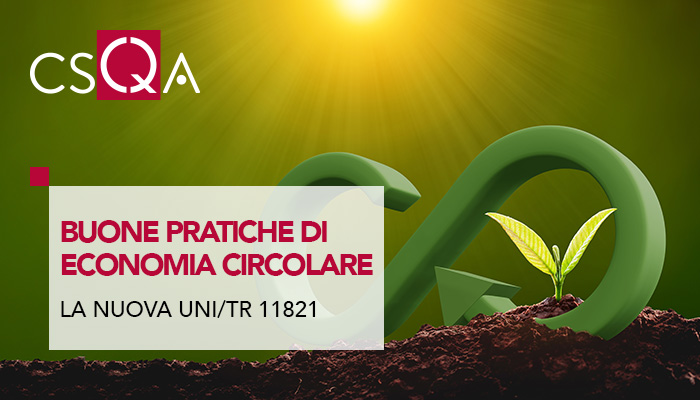
UNI has published the new UNI/TR 11821 "Collection and analysis of good circular economy practices".
This technical report contains an analysis of circular economy best practices of Italian organizations . The good practices are divided into macro-application areas on which the performances and impacts of the selected organizations have been analyzed (for example: product as a service, product life cycle extension, use of by-products). The document also discusses the expected quantitative and qualitative improvements and replicability.
The document is based on a broad perspective of evaluating the effectiveness of good practice, including different aspects under which to examine the cases presented and the proposing organisations. These criteria concerned, among others, aspects such as the innovativeness of the solutions in organizational and business terms, the technological level , their magnitude , their replicability as well as their environmental and social impact .
Alongside this evaluation system, evaluations of congruence with the principles of the circular economy have also been associated, with a view to life-cycle thinking .
The document therefore intends to represent an element of direction in the identification of implementation paths and critical issues in the implementation of the circular economy by organizations by identifying current methods, possible approaches to be replicated in the same or in other sectors and finally barriers to implementation.
The technical report provides:
- indications on the most widely adopted technologies or methodologies , for the benefit of technical stakeholders;
- the description of how the BPs are developed at the Italian level and what their potential and limits are, for the benefit of social stakeholders;
- the description of some existing markets and the expected economic benefits , for the benefit of market stakeholders;
- support for the definition of legislative practices to promote the circular economy , for the benefit of institutional stakeholders.
The circular economy is a systemic and collaborative approach that involves stakeholders according to the quadruple helix approach: public administration, businesses, the third sector, civil society. (Source: https://www.uni.com/ )